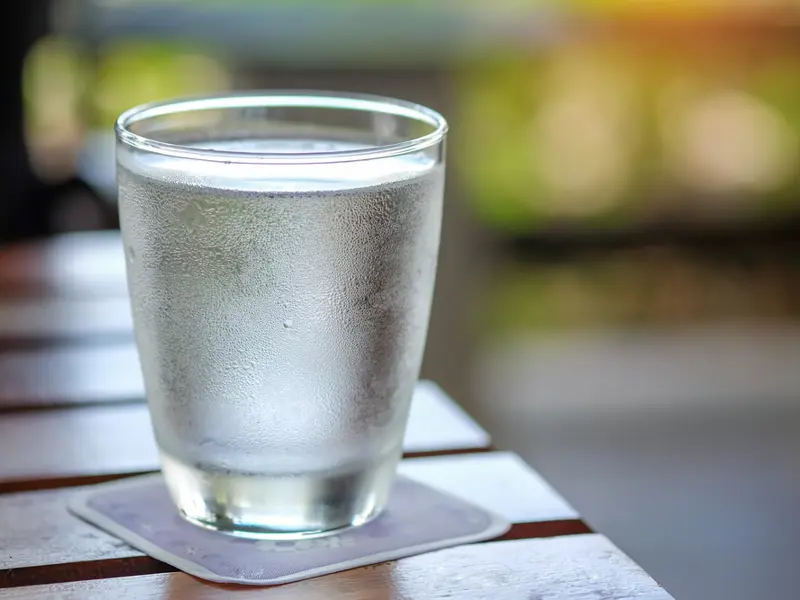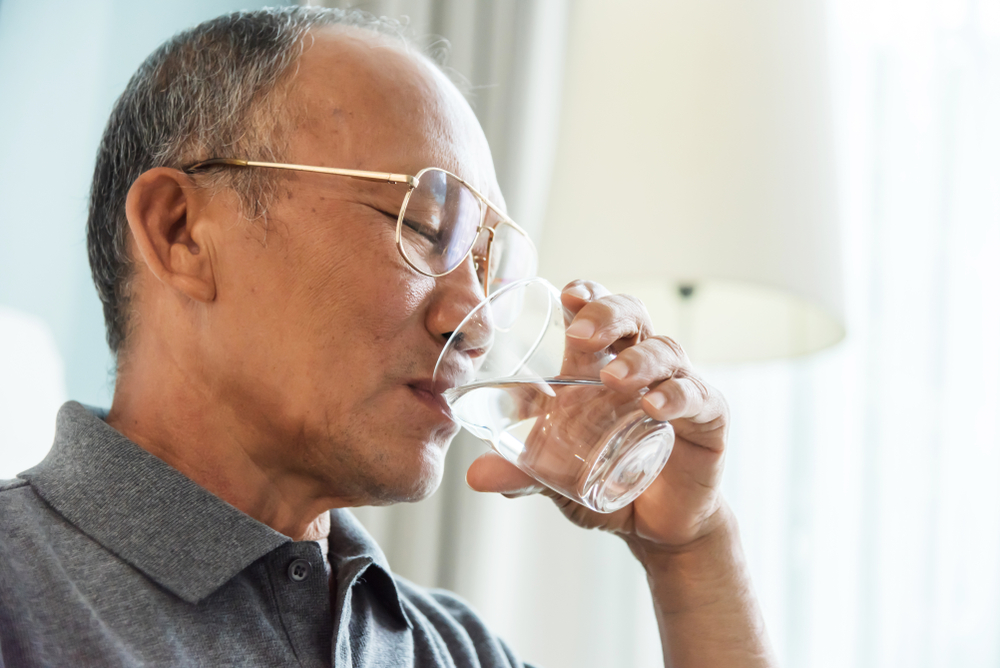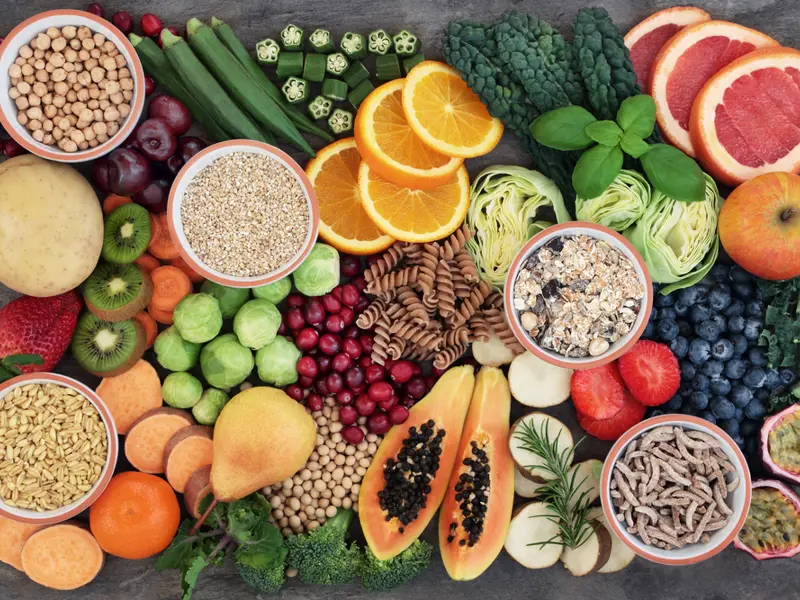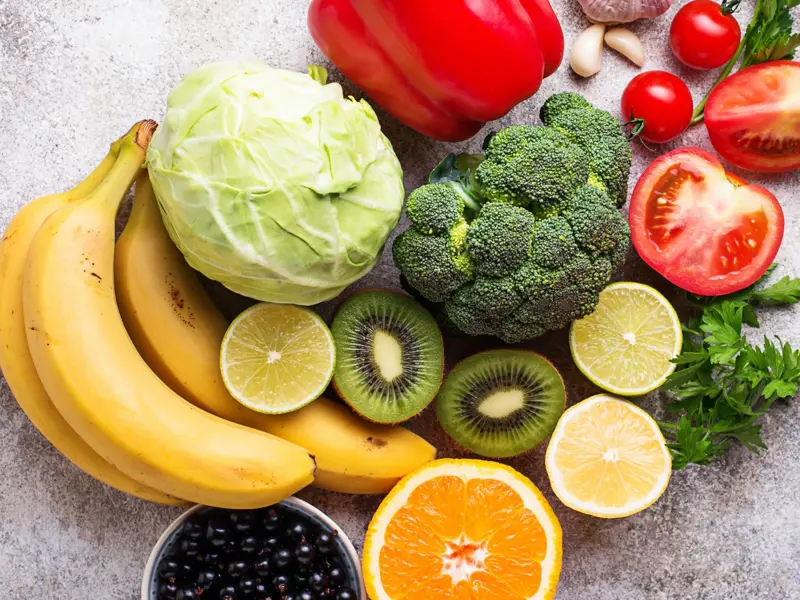It is possible, although very rare, to drink so much water the body cannot get rid of the excess quickly enough and sodium levels in the blood become dangerously low. This can have serious health consequences and can happen when people drink excessive amounts of fluid during endurance exercise and those following extreme detoxing regimes.
What is hydration?
We lose water from our body throughout the day through natural processes such as sweating and going to the toilet. Hydration is the replacement of this water.
Our bodies need water for a wide variety of functions including regulating body temperature, being physically active and brain function - so it’s important to ensure we are drinking the right amount of water to stay healthy.
It’s crucial that we know how much fluid we need to stay healthy, what drinks are the best for hydration and why/when our fluid intake requirements may change.
‘Fluid’ includes not only water from the tap or in a bottle, but also other drinks such as tea, coffee, milk, fruit juices and soft drinks.
The body loses water throughout the day in urine, in sweat, through the skin and in small amounts when we breathe - so to stay hydrated we need to get fluids from the food and drinks we consume.
Sarah Coe, Nutrition Scientist, British Nutrition Foundation
Staying hydrated
The facts about the fluids we consume:
Key facts about hydration
- Water makes up over half our bodyweight - fluids are essential for good health.
- If we are dehydrated this can make us feel tired, cause headaches and poor concentration.
- We need about 6-8 cups or glasses of fluid a day – more if it is hot or if we are physically active.
- All non-alcoholic drinks, including tea and coffee, can hydrate us but it's important to make healthy choices.
- Younger children need plenty of fluid and may not be able to ask for drinks so we must encourage them to drink regularly.
- Older adults who are not in good health, may be more at risk of dehydration and so need to be supported to drink regularly.
Hydration FAQs
Does tea and coffee count towards my daily fluid intake?
Yes. Tea or coffee can count towards our fluid intake.
However, the caffeine found in tea and coffee can make us produce more urine but drinking moderate amounts doesn't seem to affect our hydration. Herbal or caffeine free alternatives also count towards our fluid intake. To make it a healthier choice, try not to add sugar to your tea and coffee.
Pregnant women are advised to consume no more than 200mg of caffeine a day.
What are the signs of dehydration?
Dehydration happens when your body loses more fluids than it has taken in. This can happen when you are sick, are exercising or simply not drinking the recommended intake of fluids.
Mild dehydration can have unpleasant but not serious side effects, such as headaches but if dehydration becomes severe and it is not treated, it can cause serious problems. Children, older people and those who have some illnesses have a higher risk of serious complications if they become dehydrated.
You should seek medical advice if you think you or someone in your care is severely dehydrated.
Some signs of dehydration:
- Feeling thirsty
- Passing urine less frequently
- Dark yellow and strong smelling urine
- Passing urine less frequently
- Feeling dizzy or drowsy
- Dry mouth, lips and tongue
- Sunken eyes/darkened area around the eyes
If you suspect your baby may be dehydrated you should seek medical advice. Some signs may be: few or no tears when they cry, sunken eyes, reduction in wet nappies and drowsiness.
The NHS website shares guidance along with what to do, and what not to do if your baby shows signs of dehydration.
More on fluids and hydration
5 top tips for keeping children hydrated
- Ensure children have a drink before school with breakfast, as well as during breaks/playtime.
- Parents, teachers and guardians should offer drinks regularly, especially in hot weather.
- Remember that many foods have a high water content and can also contribute to fluid intake, such as fruit, vegetables, soup and yogurt.
- Always pack a water bottle in a bag for children heading off to school/outings/other activities.
- Children who are old enough to sleep in a bed should have a drink of water readily available during the night, especially during warmer months.
You also might like to read about:
Last reviewed October 2023. Next review due October 2026.

















